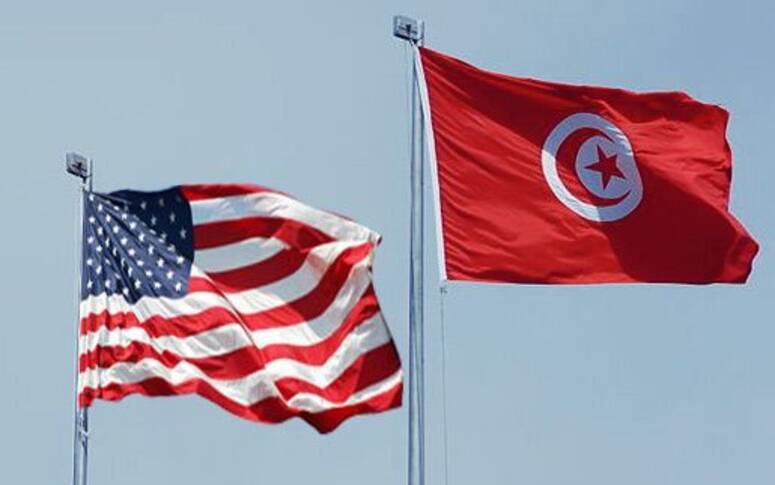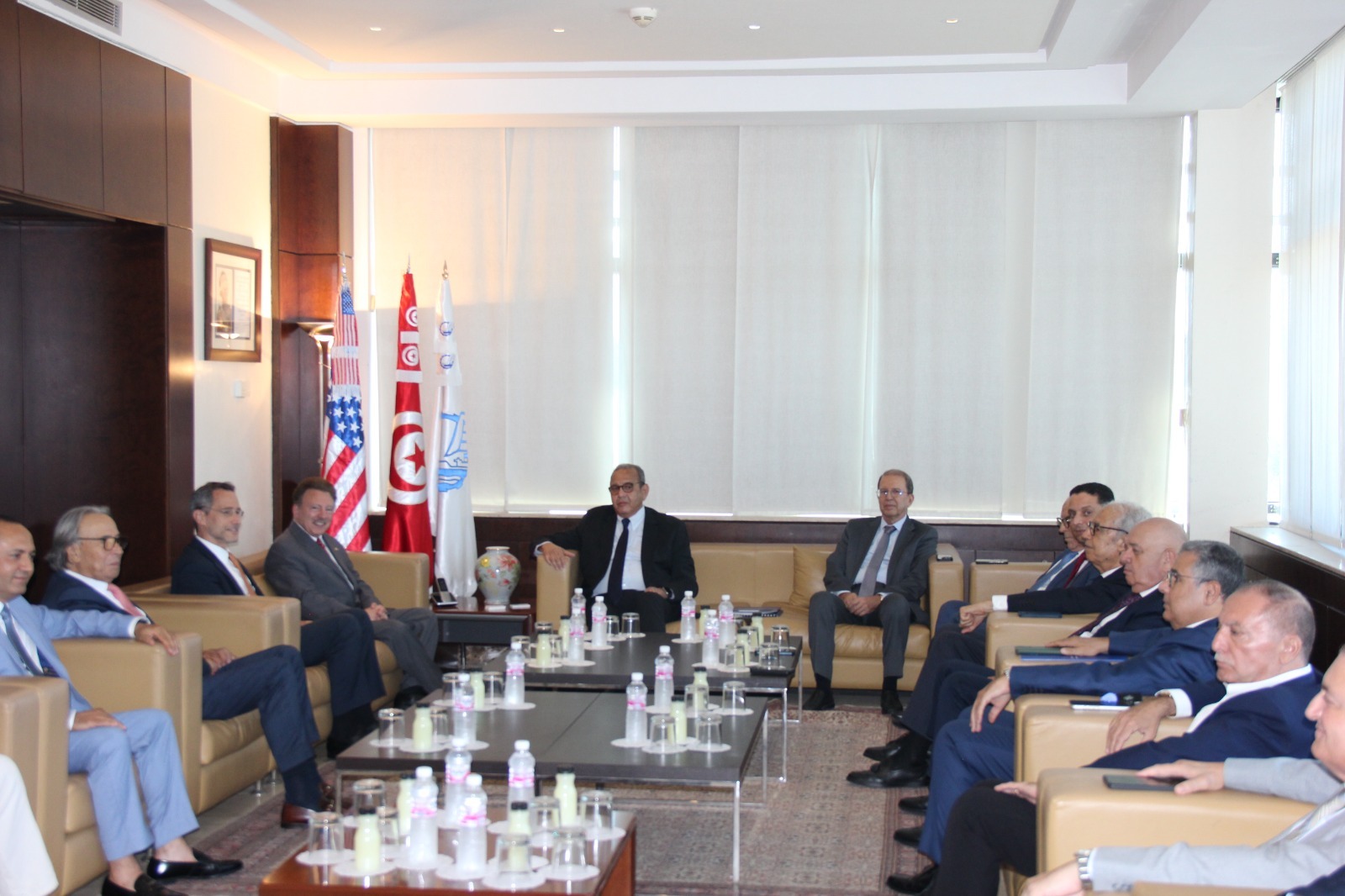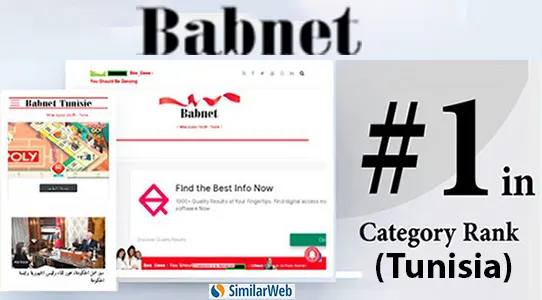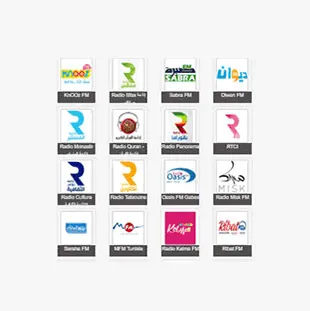Strengthening U.S.-Tunisian Economic Ties: High-Level Meeting Between UTICA and American Delegation Focuses on Investment, Trade, and Strategic Partnerships

Mr. Samir Majoul, President of the Tunisian Union of Industry, Trade, and Handicrafts (UTICA), received on Friday, July 11, 2025, at the organization's headquarters in the capital, Mr. Joey Hood, Ambassador of the United States of America to Tunisia, and Mr. David Hamod, President of the National U.S.-Arab Chamber of Commerce (NUSACC), in the presence of several members of UTICA’s national executive board, senior officials of the Union, representatives of various economic sectors, and the President of the American Chamber of Commerce in Tunisia.
During the meeting, both parties reviewed the long-standing economic relations between Tunisia and the United States, stressing the importance of building an economic partnership that serves mutual interests and benefits both countries.
During the meeting, both parties reviewed the long-standing economic relations between Tunisia and the United States, stressing the importance of building an economic partnership that serves mutual interests and benefits both countries.

Mr. Samir Majoul reaffirmed Tunisia's ongoing efforts on all fronts to become an ideal destination for both national and foreign investment, and its ambition to establish international partnerships and strategic projects in various key sectors. These include energy and particularly renewable energy, due to its potential to drive sustainable development, as well as promising sectors such as sustainable agriculture, agribusiness, information and communication technologies, the digital economy, higher education, scientific research, healthcare, pharmaceuticals, handicrafts, textiles, logistics, and mechanical and electrical industries. These sectors, he emphasized, have high export potential and the capacity to create jobs.
He highlighted UTICA’s commitment to strengthening U.S. investments and expanding trade cooperation with the United States toward Africa, the Arab world, and Europe.
Mr. Majoul also underscored the high quality of Tunisian products such as olive oil and dates, as well as their unique health and environmental benefits. He stated that Tunisian olive oil, thanks to the diversity of its varieties and the richness of its soil and climate, is a high-quality natural product that contributes to carbon absorption, making it supportive of healthy diets and environmental sustainability. He warned that imposing customs duties on Tunisian exports to the U.S. market—such as olive oil, dates, textiles, and handicrafts—would negatively affect Tunisian exporters and American consumers alike, as these tariffs would drive up product prices.
Mr. Majoul stressed the importance of developing U.S.-Tunisian partnerships based on trust and mutual interests, leveraging Tunisia's strategic location and its network of trade agreements. He noted that several promising sectors are ready to attract new investments and called for taking advantage of the complementarity between American expertise and Tunisian capabilities to develop joint projects, including those targeting third markets in Africa, Europe, and the Arab world.
For his part, U.S. Ambassador Joey Hood affirmed the two countries share a common history that serves as a solid foundation for future relations. He emphasized the existence of numerous opportunities that require joint efforts, and acknowledged current challenges such as the trade deficit and customs duties imposed on Tunisian exports. He called for continued collaboration and the development of practical strategies to address these issues.
Mr. David Hamod, President of the National U.S.-Arab Chamber of Commerce, highlighted that the U.S. market is not a single market but rather 50 diverse markets across 50 U.S. states, which necessitates greater marketing efforts to introduce American consumers to the variety of Tunisian products. He called for better exploitation of these trade opportunities.
The meeting also reaffirmed the importance of American investment in Tunisia and the mutual desire to encourage U.S. investment in Tunisia, as well as enhance Tunisian investment opportunities in the U.S. market.
UTICA representatives presented the diversity of Tunisia’s industrial fabric, the competitiveness and excellence of its sectors, the efficiency of its human resources, and its openness to innovation and technology. They emphasized Tunisia’s ability to integrate into global value chains and highlighted the evolution and expansion of Tunisian startups toward the U.S. market. They also discussed the possibility of moving toward targeted bilateral agreements that focus on specific sectors and opportunities.
The meeting concluded with a review of efforts by the American Chamber of Commerce in Tunisia to find solutions to the potential impact of tariffs on Tunisian exports, in coordination with UTICA, several universities, and professional chambers, along with the idea of organizing cultural days to promote awareness of the historical bilateral relations between Tunisia and the United States.





















Comments
0 de 0 commentaires pour l'article 311748